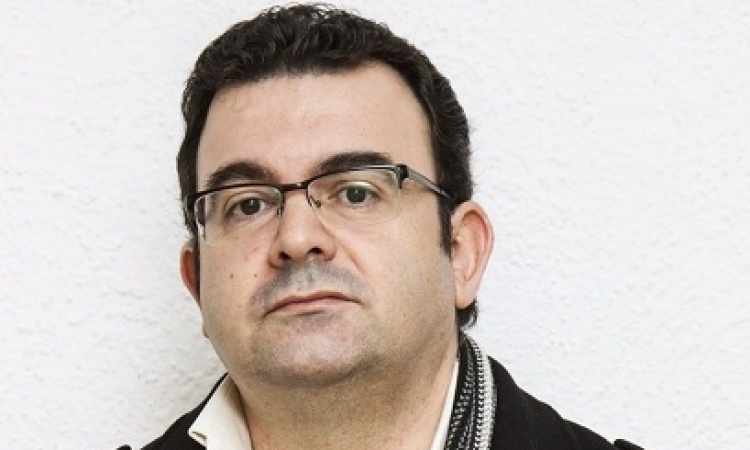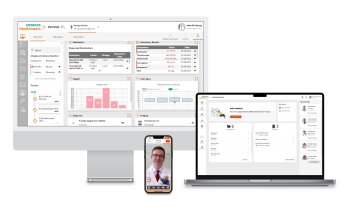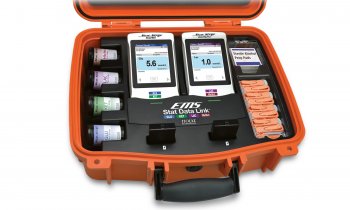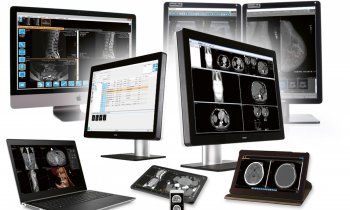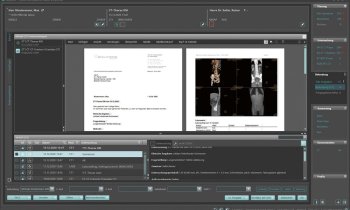The USB health card
Entrepreneur Dr Gunter Pollanz was a central figure in the build-up of charter flights to Israel and in the foundation of MAOF Airlines in Tel Aviv. Later, he also developed important export structures from Israel to Europe. However, in 1997 his life took a dramatic turn when he was diagnosed with lymphoma. Prognosis: Although 54 years old he faced just three more months of life. Today, Dr Pollanz is cured, but one big concern lingered on –during his illness, quick access to his own medical data had proved impossible.

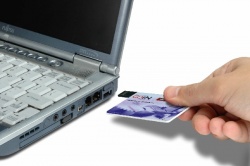
Consequently, he worked to develop a USB health card the size and of a credit card, so that all patients could gain full and unlimited access to their medical details. The result was the Med-O-Card. Already on sale in Israel and Switzerland, the card is now being introduced in Germany. ‘If you have your data available, you can act, compare and control. This in itself may start the healing process,’ he explained during an interview with Karoline Laarmann of European Hospital.
When lymphoma was diagnosed, an oncologist friend had advised Dr Pollanz to look up available FDA data. ‘Reading this I realised that -- whether or not I was to undergo chemotherapy -- my chances of survival were only about 2.3%. I then decided that I was not happy to undergo immune system destroying chemotherapy for a 2.3% chance of a cure. Based on some form of intuition, I thought I’d be okay without it. However, I had learnt something very significant from my – in itself disappointing – research: not just to let the doctors carry all the responsibility for my fate, but to deal with the facts myself. So I began to look for my medical data. At one point I spent three days in the catacombs of the Ichilov Hospital in Tel Aviv, where they held my data but didn’t know where. The same can happen in other hospitals, anywhere in the world. There is hardly any real digital data storage in place anywhere -- this is pure fantasy. Digital existence today means that X-ray images, for example, may well be stored on a CD – but this CD is then often simply put in an envelope and filed just like any piece of paper. So, although the data exists in digital form it’s no longer digitally accessible. Despite all advances, medical informatics has not yet progressed to a stage where meaningful data communication is ensured for each patient and case.’
If a patient has little medical knowledge, how useful can access to a health record be?
‘Obviously patients have some catching up to do here. We are not yet used to understanding our own patient data for what they really are, even from a legal point of view as our own property. It is obviously also clear that the USB health card is no replacement for a medical degree. But that’s not its objective. The objective is to create transparency and sources of information for all concerned, which is essential for our healthcare system, and this obviously includes the patient. The Americans are much more advanced in this because their government emphasises the importance of being proactive. Therefore, they are better trained in taking up their patient rights and the right to access their personal data. In Europe, although we are used to looking after all our personal documents, such as insurance policies, birth certificates, marriage certificates and so on, we have not been trained to administer our healthcare data. However, citizens can only actively play a part in their own healthcare if they are informed.’
Patients can upload data to the Med-O-Card themselves, but to what degree should patients participate in managing their own health?
‘The Med-O-Card does not replace the doctor-patient consultation. ‘Most information is uploaded together with the doctor or by the doctor alone via the patient administration system,’ Dr Pollanz explained. ‘But it does give you the infrastructure to better inform yourself and even support treatment by the doctor, because he can get a better picture based on the availability of complete information. A doctor who doesn’t personally know a patient can therefore – in emergencies, for example – take into account the patient’s medical history and other diseases when making his diagnosis. The card summarises all the most important data. This means that the doctor who prescribes medication, as well as the patient who obtains the medication from a pharmacy of his own accord, can do an automatic medication check.’
But this means every doctor has to transfer patients’ data to their Med-O-Cards at their request.
‘Don’t forget that being handed your personal data is your right,’ Dr Pollanz countered. ‘Within a year, we hope that the data transfer will happen automatically from the doctor’s PC to the card via simple Java tools. This requires that the practice administration software and hospital information systems be open to the outside, i.e. that data transfer is permitted. It’s quite simple from a technical point of view. The often cited argument of data protection has a mere alibi function here. We cannot have situations where a patient dies in a road traffic accident because the emergency doctor found the patient’s data card but the data stored on it were not accessible. As a patient, I have a right to release information on my Med-O-Card, which, in emergencies, should also be accessible without password or user name.’
Asked for his opinion on the introduction of the electronic patient record in Germany, he said that the concept behind the eCard is good. ‘However, our efforts should not be limited to the Smart Card. At the beginning of the development no one was in a position to know about the new opportunities USB was going to offer. Unlike the central storage solution of the Smart Card, the decentralised storage via USB means that no particular investments in hardware or software are required any more. Moreover, the Med-O-Card can already store 16 Gigabyte. The future of the eCard can therefore only be a combination of security technology and flash storage technology.’
26.01.2010




